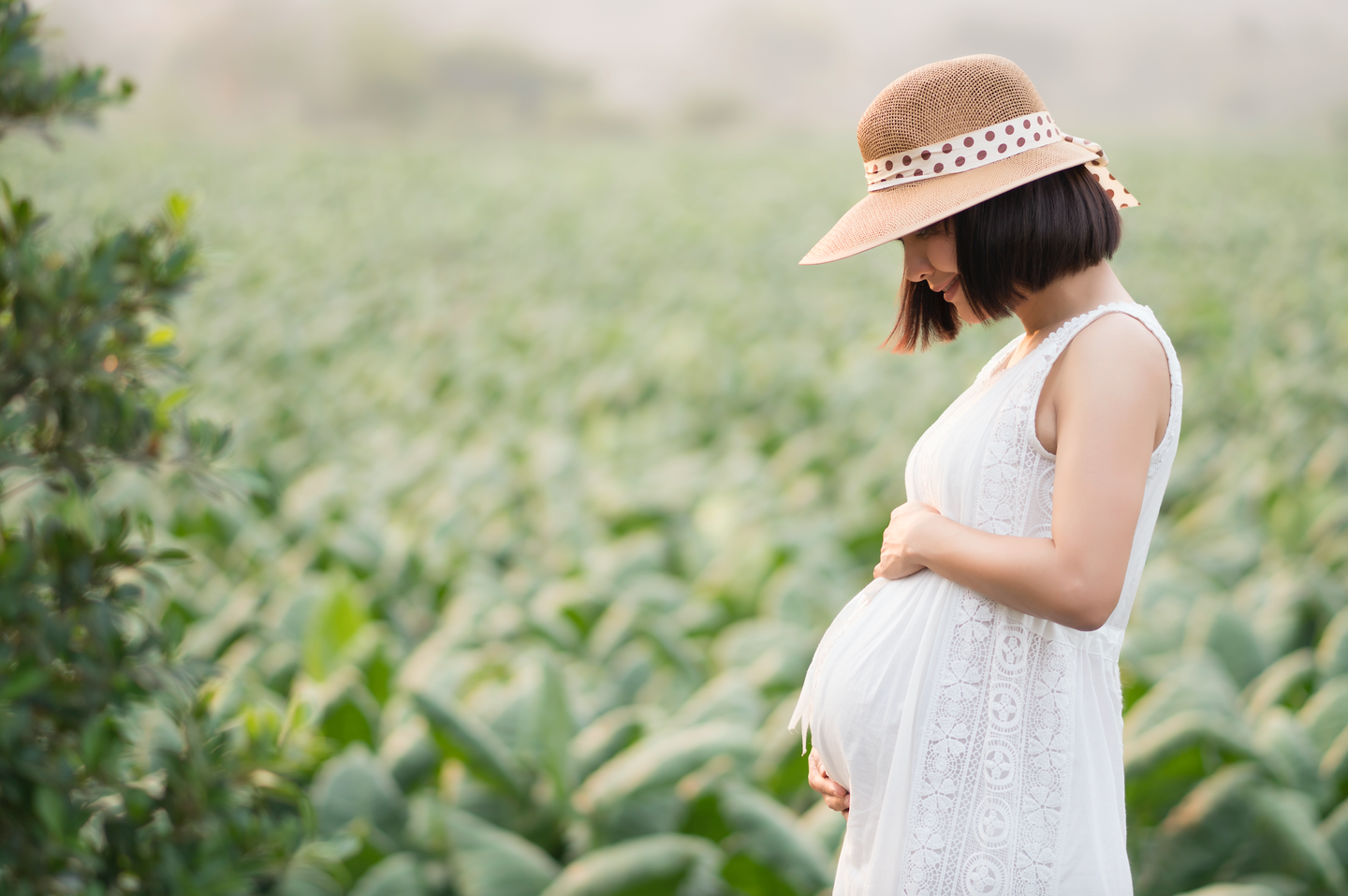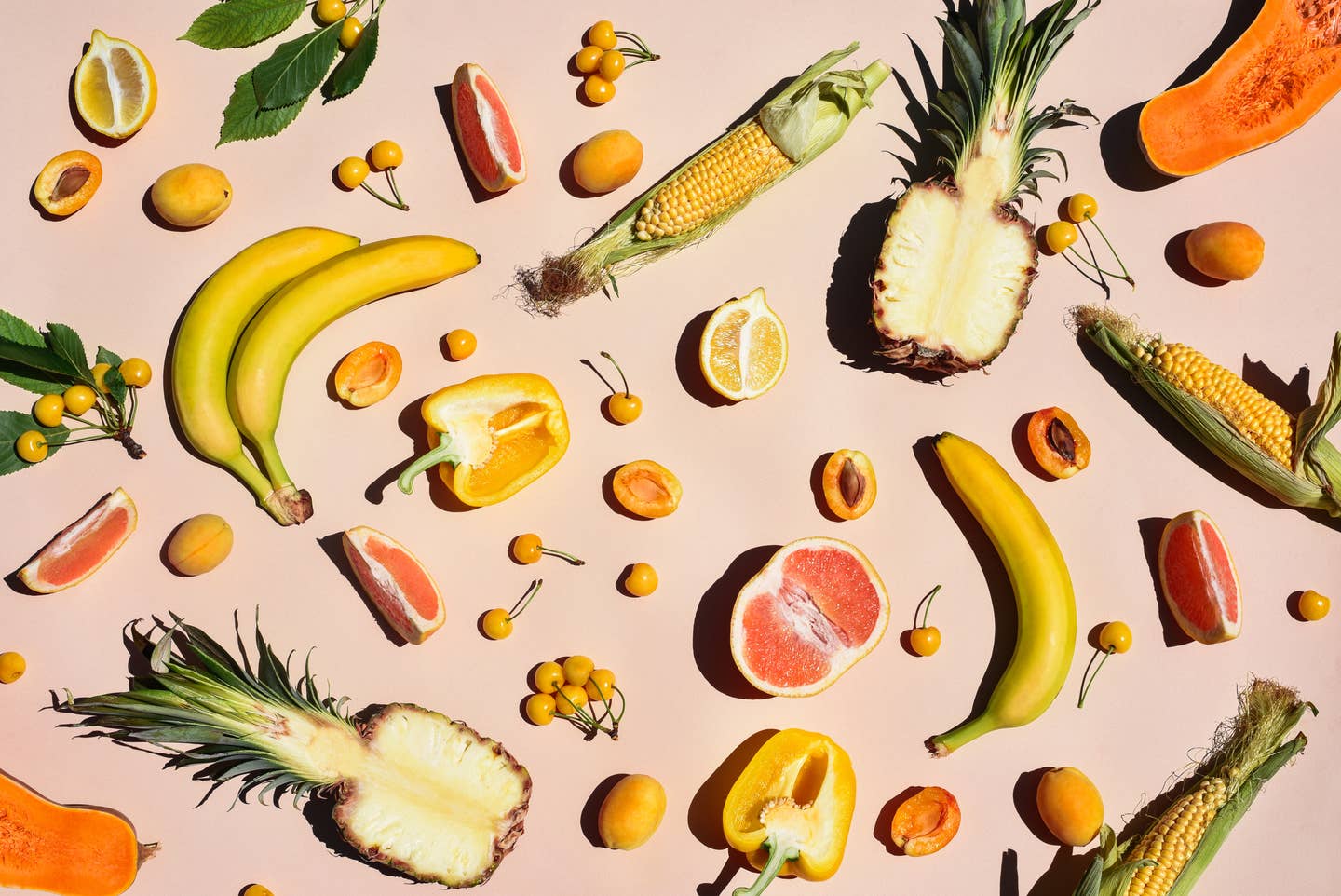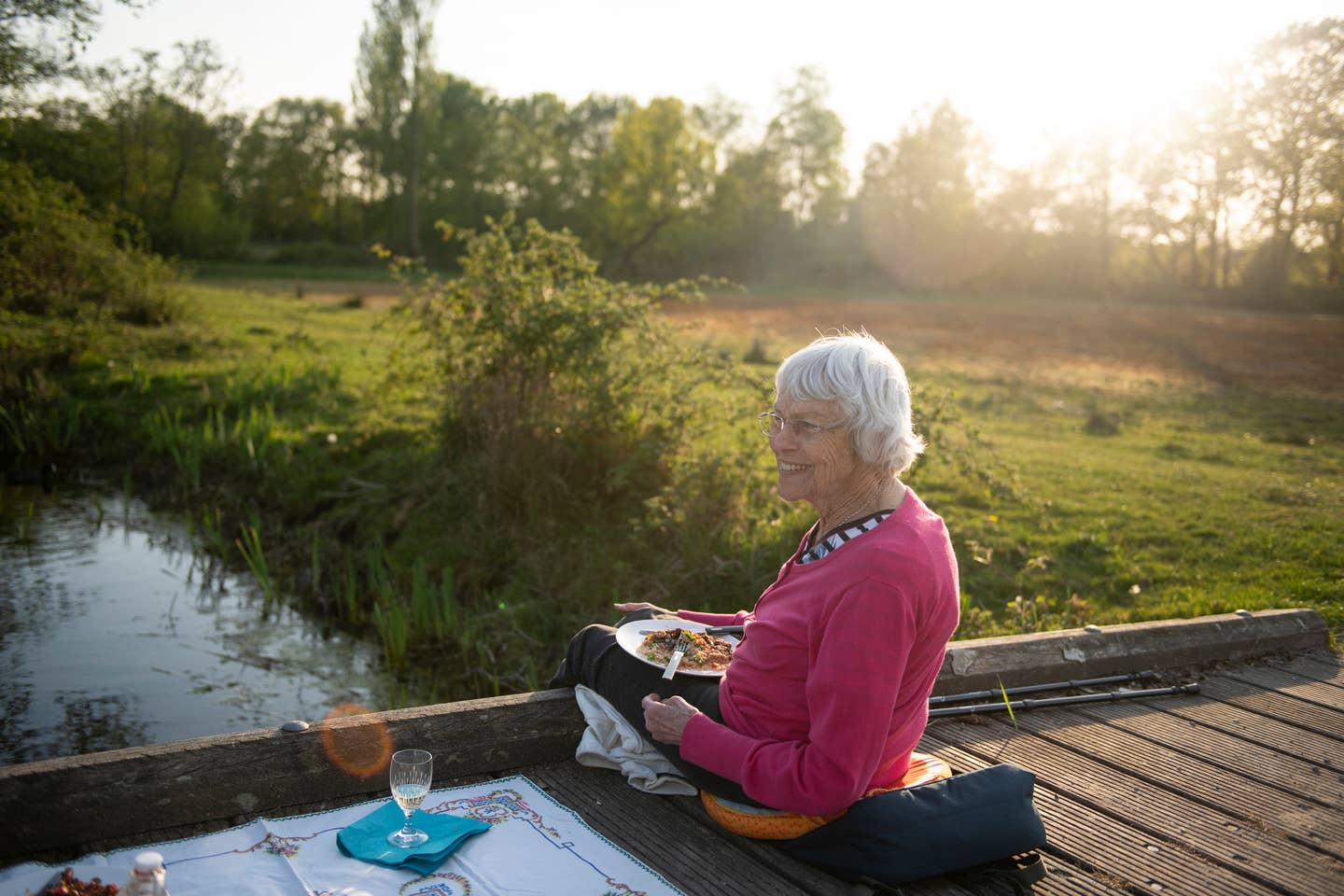
Yes, It’s Possible to Have a Healthy Plant-Based Pregnancy
At my first prenatal appointment, I breathed a sigh of relief when the doctor assured me that the baby and I would be just fine if I didn’t eat meat. I’ve been a vegetarian for two decades, so switching my diet seemed about as drastic a life change as having a child. Still, before the nurse handed me an information packet, she circled the daily protein recommendation: 75 grams. I’d never counted my protein intake before, but that seemed like an awful lot to eat. Was it even possible to get that much without stuffing myself silly with almonds, hemp seeds, and tempeh?
Doctors from the American College of Obstetricians and Gynecologists and the Academy of Nutrition and Dietetics agree that vegetarian and vegan pregnancies can be perfectly healthy; you just might have to pay a little more attention to what you’re eating to make sure you’re getting everything you and the baby need.
Vandana Sheth, a registered dietician nutritionist and spokesperson for the Academy of Nutrition and Dietetics, is a lifelong vegetarian with two kids of her own. She says that dietary guidelines are just that: guidelines. Recommendations need to be tailored to the individual. So while the packet from my doctor’s office serves as a good rule of thumb for most patients, it wasn’t necessarily the amount for me.
An easy way to estimate what you need, Sheth says, is the Recommended Dietary Allowance (RDA): about 1.1 grams of protein per kilogram of body weight (for non-pregnant adults, it’s 0.8 grams of protein per kilogram). A 120-pound woman who’s expecting, for example, would want to aim for 60 grams, while a 140-pound pregnant woman would want to take in 70 grams. Whether you started out underweight, normal weight, or overweight plays a factor in whether you’d want to get more or need less, Sheth says.
“While it seems overwhelming to calculate all this,” she says, “it’s not that difficult to meet your needs.” For example, 2 tablespoons nut butter, 1 cup of fortified non-dairy milk, and 1⁄2 cup beans all count as one serving of protein toward the six to seven servings I’d need in a day. Plus, vegetables like artichokes, peas, and broccoli contain a fair amount of protein, too.
Of course, it’s not just about protein. Many of the other nutrients to pay attention to are the same whether or not you eat a plant-based diet. Folate, zinc, calcium, vitamin B12, and vitamin D, and omega-3 fatty acid levels are all essential for a mom-to-be’s health and her baby’s development—and can be influenced by what you eat.
According to Dr. Kurt Wharton, professor at Oakland University William Beaumont School of Medicine and medical director of the Family Birth Center, vitamin D is one of the most common deficiencies. “That’s because at least 95 percent of Americans are vitamin D deficient,” he says, pregnant or not. A supplement can help with this.
Folic acid needs are higher for pregnant women, and help prevent birth defects of the neural tube, but Wharton says he worries less about his vegetarian patients getting enough, because they tend to eat more dark leafy greens as a regular part of their diet. Folic acid is especially important at the beginning of pregnancy, which is why doctors recommend starting a prenatal vitamin with folic acid if you’re trying to conceive, just in case folate-rich foods don’t make regular appearances on your plate.
Leg cramps, especially in the second or third trimester, can be one of the early signs of calcium deficiency, Wharton says—a result of the baby pulling calcium from your bones if there’s not enough coming in through your food sources. But it’s possible for even vegans to meet their growing baby’s needs through diet, thanks to calcium-rich vegetables and fortified foods and drinks like orange juice.
“With vegetarians, the only thing I really worry about is anemia,” Wharton says. “Other than that, they’re my healthiest patients.” A vitamin B12 deficiency or an iron deficiency can cause anemia, so make sure your doctor checks which one is the cause. Still, Wharton says he has conscientious vegetarian patients who consume enough iron through diet alone that they never need any iron supplements. A tip from Sheth: Pair an iron-rich food with one that’s full of vitamin C to increase the absorption. “If you’re having a dark green leafy salad, maybe add a citrus vinaigrette, or tomatoes or bell peppers,” she suggests.
Omega-3 fats develop the baby’s nerve and visual functions, and most people think of them coming from fish, Sheth says, but they’re in flax seeds, chia seeds, and walnuts too. “I usually tell my clients, if you have 1 to 2 tablespoons of chia or ground flax meal, you’re getting a pretty decent amount of omega-3 fats for the day,” she says.
How can you tell if you might be deficient? “It’s tricky, because often symptoms like feeling more tired can just be pregnancy-related,” says Sheth. “But if you feel like you’re eating right, you’re active, and you’re still feeling really tired and out of it, definitely check with your physician and meet with a dietician.”
The easiest way to make sure you’re getting all the good stuff—without making yourself crazy—is through a diverse diet. “More than anything, if you get a wide variety of foods into a day, you’re going to meet your nutritional needs,” Sheth says. If you’d like to get a little more granular, Sheth she often recommends clients tally up servings throughout the day. Eat peanut butter toast for breakfast? Check off one serving of protein and one of grains. Or you can use an app like MyFitnessPal or SparkPeople that lets you input everything you eat. For a couple weeks, I put my meals into the Cronometer app, but now that I have an idea of how everything adds up, I don’t track every single day.
Wharton recommends the USDA’s site choosemyplate.gov site, which can help you calculate your individual needs—just put in your age, pre-pregnancy weight, and trimester, and you’ll get calorie recommendations and suggested servings for each of the food groups.
Talking with a dietician can ease your mind, too—it certainly did for me. If you don’t live near one who specializes in plant-based diets, Sheth says many do virtual consultations. Just search the Academy of Nutrition and Dietetics’ website, eatright.org, to find someone who can help you make the most of what you like to eat with smart pairings and snack choices. “Pregnancy is such a special time,” Sheth says. “And it’s also a good time to reset your nutritional intake because you’re setting the pattern for how you will be taking care of yourself, the baby, and the family down the road.”
Check out Vegetarian Nutrition, the Cleveland Clinic, the Vegetarian Resource Group and vegan.com for more on plant-based pregnancies!
More From The Beet






